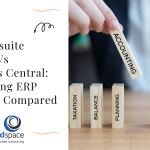The Benefits of Offshoring Accounting Services
Offshoring accounting services has become a viable strategy for many organizations, including nonprofits, seeking to optimize costs, access specialized expertise, and enhance operational efficiency. This essay explores the benefits of offshoring accounting services, highlighting its impact on nonprofits and key considerations for successful implementation.
Introduction
In today’s globalized economy, offshoring—defined as the practice of relocating business processes or services to a foreign country—has gained traction across various industries, including accounting and finance. Nonprofit organizations, driven by the need to maximize resources and focus on mission-driven activities, increasingly turn to offshore as a strategic solution for managing accounting functions. This essay delves into the benefits of offshoring accounting services for nonprofits, examining how it can streamline operations, improve financial management, and ultimately enhance social impact.
Benefits of Offshoring Accounting Services
- Cost Efficiency:
Offshoring accounting services often offers significant cost savings compared to maintaining an in-house accounting department or outsourcing locally. Countries with lower labor costs and favorable exchange rates can provide cost-effective solutions for routine accounting tasks such as bookkeeping, payroll processing, and financial reporting. These savings allow nonprofits to allocate more resources toward their core programs and initiatives, thereby maximizing their impact on the communities they serve.
- Access to Specialized Expertise:
Offshoring enables nonprofits to tap into a global talent pool of accounting professionals with specialized skills and experience. Many offshore service providers are adept at handling complex accounting standards, regulatory compliance, and financial reporting requirements specific to different jurisdictions. This expertise ensures accuracy and adherence to industry best practices, which is crucial for maintaining transparency and accountability in nonprofit financial management.
- Scalability and Flexibility:
Offshore service providers offer scalability and flexibility to adapt to the evolving needs of nonprofits. Whether scaling operations during peak periods or adjusting service levels based on organizational growth, offshoring allows nonprofits to maintain operational agility without the constraints of fixed staffing costs or infrastructure investments. This flexibility is particularly valuable for nonprofits operating in dynamic environments where resource allocation needs may fluctuate.
- Focus on Core Mission:
By offshoring accounting services, nonprofits can redirect internal resources—both human and financial—toward advancing their core mission objectives. Outsourcing routine accounting functions frees up time and energy for nonprofit staff to concentrate on program development, community engagement, fundraising activities, and strategic planning. This shift in focus enhances organizational efficiency and effectiveness in achieving long-term social impact goals.
- Enhanced Technology and Infrastructure:
Offshore service providers often invest in advanced technology infrastructure and software systems to streamline accounting processes and improve service delivery. Nonprofits benefit from access to state-of-the-art financial management tools, cloud-based platforms for real-time data access, and secure data storage solutions. These technological advancements enhance operational efficiency and strengthen data security and compliance with regulatory requirements.
- 24/7 Operations and Support:
Offshoring accounting services to countries with different time zones enables nonprofits to benefit from round-the-clock operations and support. This continuous service availability ensures timely resolution of accounting issues, prompt response to donor inquiries, and seamless coordination with global stakeholders. Nonprofits can achieve greater efficiency in financial operations, reduce turnaround times for reporting, and maintain responsiveness to emerging opportunities or challenges.
Considerations for Successful Offshoring
While the benefits of offshoring accounting services for nonprofits are compelling, several considerations are essential to ensure successful implementation:
- Vendor Selection and Due Diligence:
Conduct thorough due diligence when selecting an offshore service provider. Evaluate their reputation, track record, industry certifications, and compliance with data security standards. Seek referrals and references from other nonprofits or organizations that have experience with the vendor to assess service quality and reliability.
- Cultural and Communication Dynamics:
Bridge cultural and communication gaps by fostering open dialogue and establishing clear expectations with offshore teams. Effective communication strategies, such as regular video conferences, project updates, and performance reviews, help build trust, alignment, and collaboration between onshore and offshore counterparts.
- Data Security and Compliance:
Prioritize data security and compliance with international regulations, such as GDPR (General Data Protection Regulation) or HIPAA (Health Insurance Portability and Accountability Act), depending on the nature of nonprofit operations. Implement robust data encryption protocols, access controls, and confidentiality agreements to safeguard sensitive financial information.
- Contractual Agreements and Service Level Agreements (SLAs):
Define contractual agreements that outline service deliverables, performance metrics, pricing structures, dispute resolution mechanisms, and termination clauses. Establish clear SLAs to monitor service quality, response times, and adherence to agreed-upon timelines to ensure accountability and transparency.
- Change Management and Stakeholder Engagement:
Proactively manage organizational change by involving key stakeholders in the offshoring process, including board members, executive leadership, finance staff, and external auditors. Address concerns, communicate the benefits of offshoring, and provide training or support to facilitate a smooth transition and acceptance of new accounting practices.
Conclusion
Offshoring accounting services presents compelling advantages for nonprofits seeking to optimize costs, enhance operational efficiency, and focus on advancing their mission-driven objectives. By leveraging global talent, advanced technology infrastructure, and scalable service solutions, nonprofits can achieve greater financial transparency, compliance, and strategic alignment. However, successful offshoring requires careful planning, rigorous vendor selection, effective communication, and robust data security measures to mitigate risks and maximize the benefits of global outsourcing. Ultimately, by embracing offshoring as a strategic tool, nonprofits can strengthen their financial management capabilities and amplify their impact on communities worldwide.


